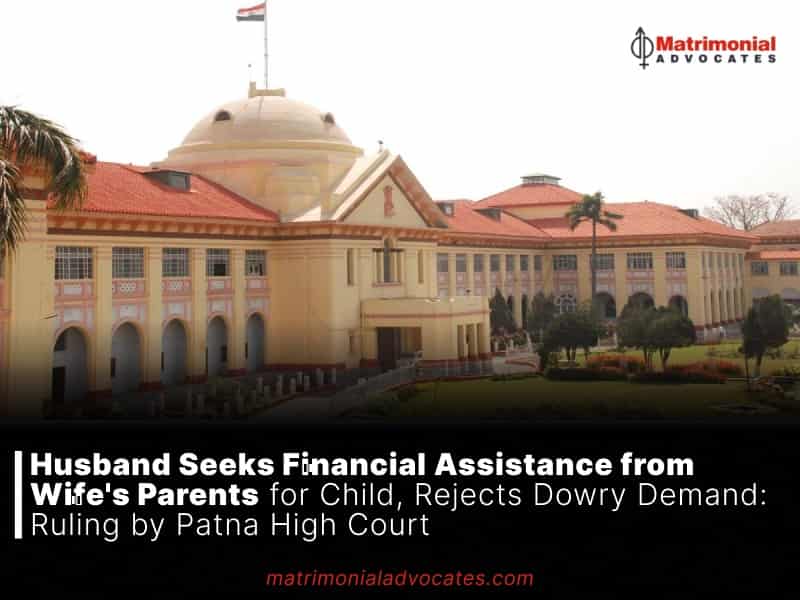
The Court made the observation while setting aside a man’s conviction under Section 498A, IPC (cruelty) and Section 4 of the Dowry Prohibition Act 1961.
The recent verdict from the Patna High Court underscores that when a husband solicits financial aid from his in-laws to care for their newborn, it does not amount to dowry harassment. Justice Bibek Chaudhuri stressed this stance while quashing a man’s conviction under Section 498A of the Indian Penal Code (which deals with cruelty against married women) and Section 4 of the Dowry Prohibition Act, 1961 (which pertains to penalties for dowry demands).
“For rearing and maintenance of a newly born baby, if the husband demands money from the paternal home of the wife, such demand does not come within the fold of the definition of ‘dowry,'” the Court held.
The couple, who married in 1994 and had three children, faced a pivotal moment in their marriage. The wife testified that around three years after their daughter’s birth in 2001, the husband and his relatives allegedly asked for ₹10,000 from her father to cover the child’s expenses. She also claimed mistreatment due to her inability to fulfill this financial request.
Initially, a trial court found the husband guilty of both dowry harassment and cruelty towards his wife. This verdict was upheld by an appellate court, prompting the husband to appeal to the High Court through a revision petition.
During the High Court review, the focus was on determining whether seeking financial support for the couple’s child constituted a dowry demand. Section 2(i) of the Dowry Prohibition Act, which defines dowry, was scrutinized, highlighting that dowry entails soliciting money, assets, or valuables as a condition for marriage.
“The essential element of dowry is payment or demand of money, property or valuable security given or agreed to be given as consideration of marriage,” the Court said.
The Court observed that the husband’s request for ₹10,000 was directed towards the welfare of the couple’s daughter, unrelated to any matrimonial arrangement. Consequently, the Court reasoned that such a plea does not meet the criteria for dowry as defined in the 1961 Act.
Additionally, the Court noted that the accusation of cruelty against the defendant under Section 498A(b) of the IPC would not hold, as this provision’s definition of cruelty is intricately linked with the definition of dowry as per the 1961 Act, as established by prior judgments.
Although Section 498A of the IPC does not explicitly mention “dowry,” it addresses harassment aimed at coercing a woman or her relatives to fulfill an “unlawful demand for any property or valuable security.” Nonetheless, the Court clarified that legal precedents have established such harassment as falling within the scope of the definition of dowry under Section 2(i) of the Dowry Prohibition Act.
Furthermore, the bench observed that the couple belonged to a community where the expenses associated with newborns are typically borne by the “Mayka” or the parental home of the married woman until the child reaches three to six months of age.
“There is also a ritual amongst the Hindus especially in villages to keep their daughter in their parental home during pregnancy till the birth of the child and the mother and child is generally sent to the matrimonial home after the child becomes three to six months old. During this period, entire expenditure is borne by the ‘Mayka (parental home) of the married lady’,” the Court observed.
The Court made it clear that it was not evaluating the validity of such a cultural tradition. It stressed that making moral assessments falls outside the Court’s jurisdiction. Consequently, the Court proceeded to quash the man’s conviction in the present case and accepted his revision petition.





